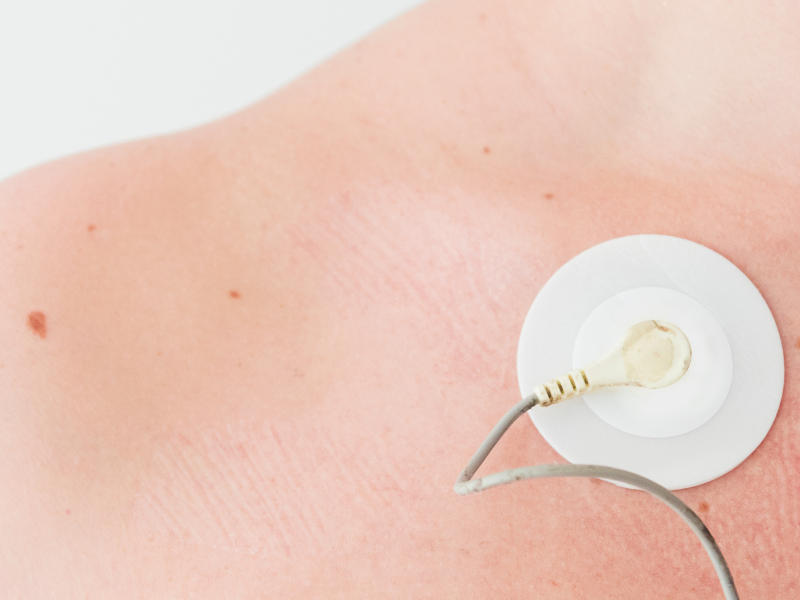
24-hour Holter ECG
24-hour Holter ECG is a common method for evaluating irregular heart rhythms. It allows for a comprehensive recording of a patient’s heartbeats over a 24-hour period. During the 24-hour Holter ECG, healthcare professionals attach ECG electrodes to the patient’s body. These electrodes are connected to a small recording device that captures each heartbeat of the individual for later analysis by the physician. This method provides a more comprehensive assessment compared to a static ECG and enables a more accurate determination of the presence and nature of the irregular heart rhythm.
However, some irregular heart rhythms may not occur within a 24-hour period but rather occur intermittently over several days. Therefore, at times, doctors may arrange for longer-duration ECG monitoring, including continuous ECG machines that can be worn for 1 to 4 weeks to capture the heart’s activity over an extended period. During this prolonged ECG monitoring, patients are required to wear the necessary devices daily. When they experience palpitations or abnormal heartbeats, they can press a record button to mark those episodes for the physician to evaluate and diagnose whether there is indeed an underlying irregular heart rhythm issue.
The 24-hour Holter ECG is an effective method for evaluating irregular heart rhythms. However, for some patients, longer-duration ECG monitoring may be necessary to capture episodes of irregular heart rhythms. Therefore, doctors will choose the appropriate monitoring method based on individual circumstances to ensure an accurate diagnosis of the patient’s heart rhythm.
Intermittent ECG
For cases of intermittent irregular heart rhythms, doctors may arrange for patients to carry a small portable ECG machine with them. This device allows for clear recording of the patient’s heartbeats during their daily activities. This method of ECG monitoring enables a clear and accurate assessment of whether the patient has intermittent irregular heart rhythms or other cardiac arrhythmias. Common methods of monitoring and recording include the 24-hour Holter ECG machine and intermittent ECG devices. Additionally, the mentioned ECG machines can be arranged for durations such as 48 hours (two days), 72 hours (three days), 1 week, 2 weeks, 3 weeks, or even 1 month, depending on the patient’s condition.

